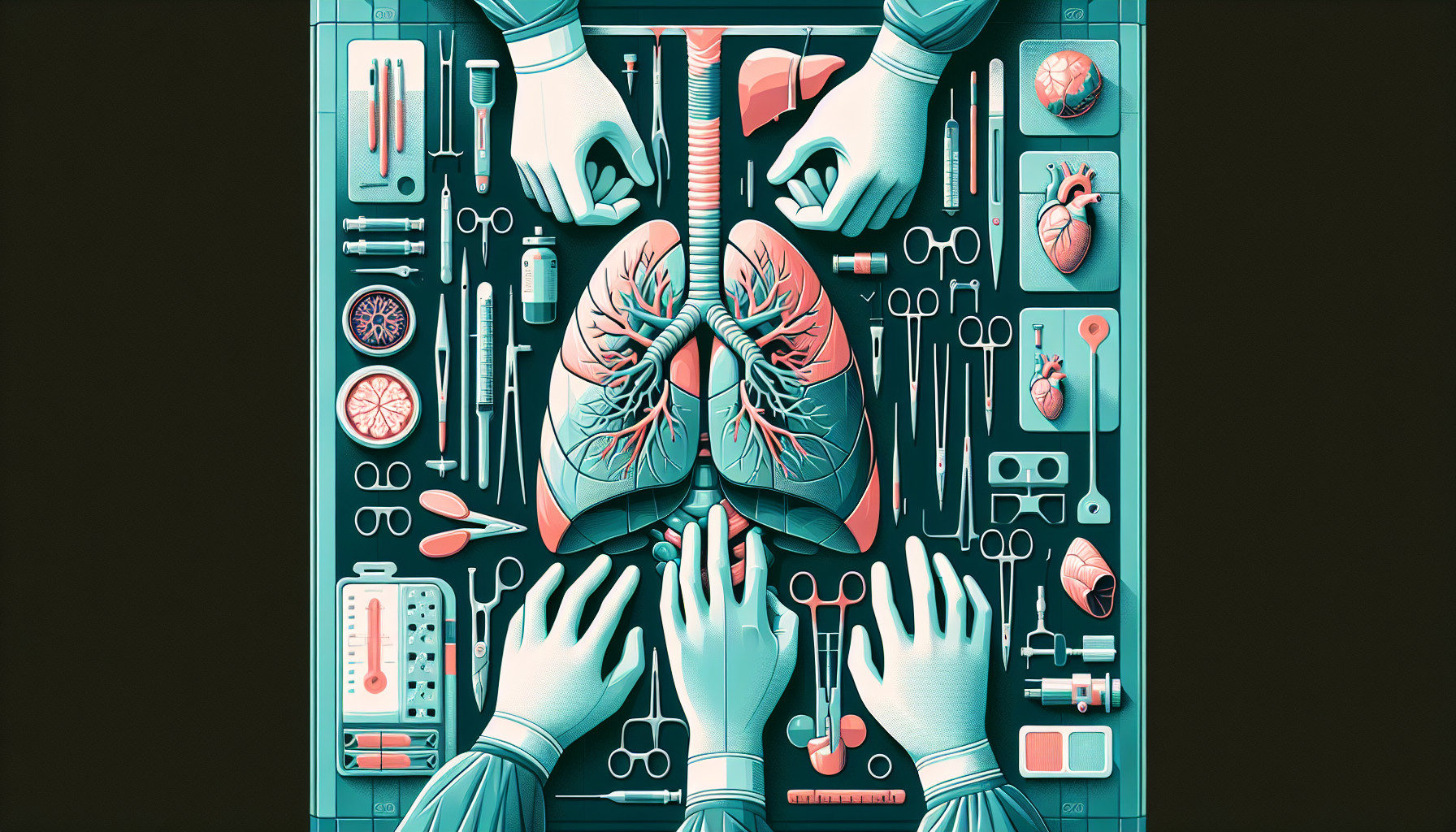Our Summary
This research paper discusses a study about using a new technique to locate small and hard-to-find lung nodules during minimally invasive surgery. The technique, known as chemical localization, uses a robot-assisted procedure (robotic bronchoscopy) to mark the nodules before surgery.
The study followed patients who had lung nodule surgery between August 2019 and March 2022. Some of these patients had their lung nodules chemically localized before surgery, while others did not.
The results showed that the patients who had their nodules chemically localized before surgery had better outcomes. They were more active after their surgery, and their nodules were smaller. They did not need any extra surgery to remove any remaining nodule tissue. On the other hand, some patients who did not have their nodules chemically localized needed additional surgery because the doctors couldn’t find or completely remove their nodules during the initial surgery.
Chemically localized patients had a slightly longer surgery time (about 10-15 minutes more), but their overall hospital stay was shorter than those who did not have their nodules chemically localized.
In conclusion, the study suggests that chemical localization using robotic bronchoscopy is a safe and effective method to locate small and less dense lung nodules. Furthermore, it helps in achieving better surgical results.
FAQs
- What is the new technique discussed in the study for locating small lung nodules?
- What were the results of the study regarding the use of chemical localization in patients undergoing lung nodule surgery?
- What are the advantages of using chemical localization with robotic bronchoscopy for lung nodule surgery?
Doctor’s Tip
A helpful tip that a doctor might tell a patient about lung resection is to consider discussing the option of chemical localization with their healthcare provider. This technique can help improve surgical outcomes by making it easier to locate and remove small and hard-to-find lung nodules during minimally invasive surgery. Patients should ask their doctor if this technique is appropriate for their specific situation and if it could potentially benefit them during their lung resection procedure.
Suitable For
Patients who are recommended for lung resection typically include those with lung nodules or tumors that are suspicious for cancer, have grown in size, or are causing symptoms such as difficulty breathing or coughing up blood. Additionally, patients with early-stage lung cancer, lung infections, or lung diseases such as emphysema or bronchiectasis may also be recommended for lung resection. It is important for patients to undergo a thorough evaluation by a healthcare provider to determine if lung resection is the most appropriate treatment option for their condition.
Timeline
Before lung resection:
- Patient undergoes imaging tests (CT scan, PET scan) to identify the lung nodule
- Patient may undergo a bronchoscopy or biopsy to confirm the diagnosis
- Surgeon discusses the surgical procedure, risks, and benefits with the patient
- If using chemical localization, patient undergoes the procedure to mark the nodule before surgery
After lung resection:
- Patient undergoes the surgical procedure to remove the lung nodule
- Recovery period in the hospital, which may vary depending on the type of surgery
- Follow-up appointments with the surgeon to monitor recovery and assess any complications
- Rehabilitation and physical therapy to help with breathing and lung function
- Long-term follow-up to monitor for any recurrence of the lung nodule or other complications.
What to Ask Your Doctor
- What is a lung resection and why is it necessary for my condition?
- What are the risks and potential complications associated with lung resection surgery?
- How will the use of chemical localization with robotic bronchoscopy benefit me during the surgery?
- Are there any alternative methods to locate the lung nodules before surgery?
- What is the success rate of using chemical localization for finding small and hard-to-find lung nodules?
- How long will the surgery take if chemical localization is used?
- What is the recovery process like for patients who have undergone lung resection with chemical localization?
- Will I need any additional treatments or surgeries after the lung resection?
- How long will I need to stay in the hospital after the surgery?
- Are there any long-term effects or considerations I should be aware of after undergoing lung resection with chemical localization?
Reference
Authors: Dolan DP, Lee DN, Bharat A, Lung K, Odell D, Kim S. Journal: J Surg Res. 2024 Apr;296:93-97. doi: 10.1016/j.jss.2023.12.013. Epub 2024 Jan 19. PMID: 38244320
